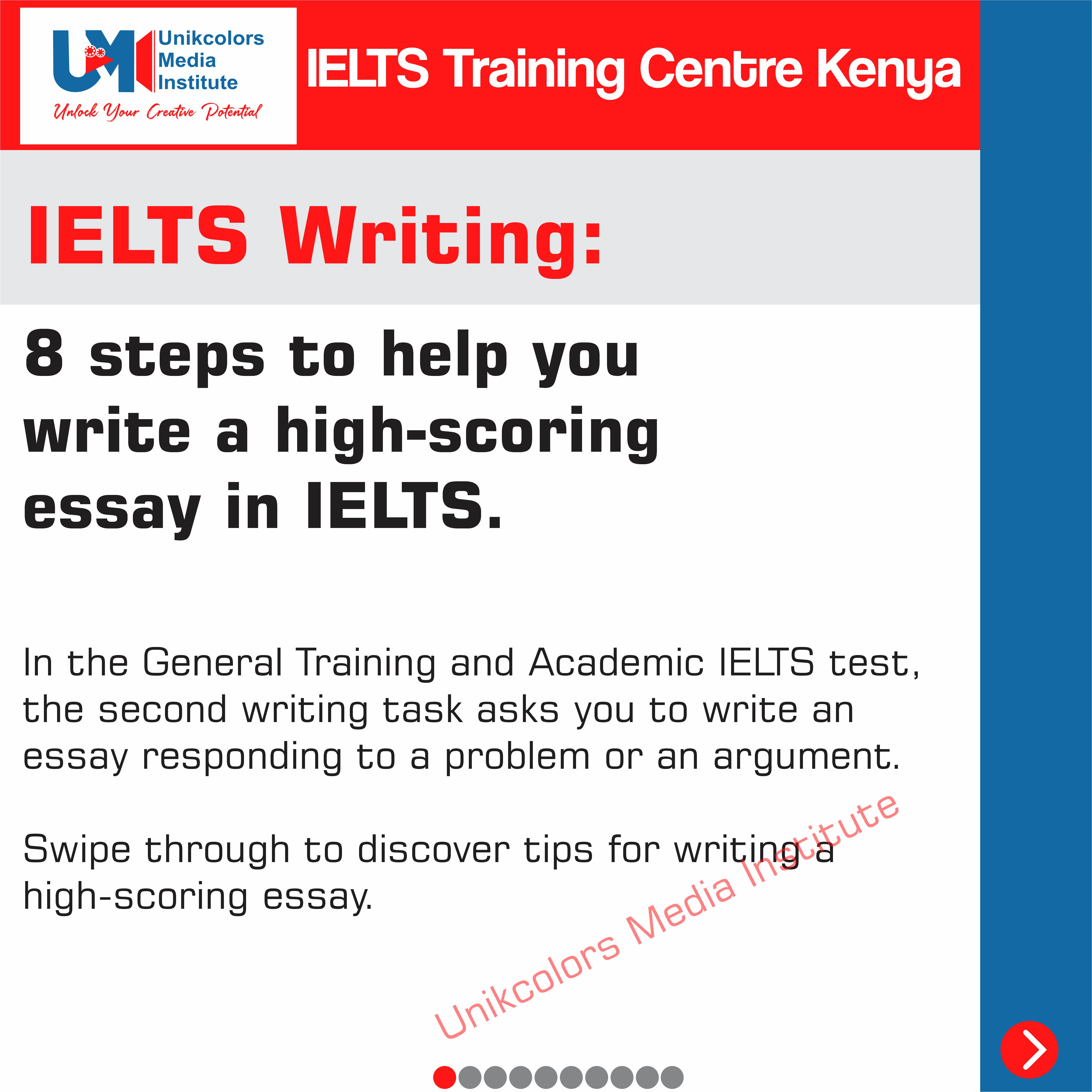IELTS Preparation- Writing tips

Title: IELTS Preparation- Writing tips
IELTS Preparation- Writing tips
8 steps to help you write a high-scoring essay in IELTS.
In the General Training and Academic IELTS test, the second writing task asks you to write an essay responding to a problem or an argument.
Scroll through to discover tips for writing a
high-scoring essay.
1. Plan your time
The writing test (consisting of Writing tasks 1
and 2) takes approximately 60 minutes. You
should plan to spend around 20 minutes on
your first task and 40 minutes on your essay
task.
2. Read the question
While you may be keen to jump straight into
Writing, make sure you take time to
carefully read the essay question. If you misunderstand the question, you risk writing an essay that does not address the issues properly which lower your score.
3. Highlight the issues to address
You will be asked to address multiple points or issues in your essay. It’s important that you address each issue individually to achieve a high essay score.
Hint:
To do this, try highlighting individual issues or points you are asked to address, so you remember to focus on those.
4. Outline your response
Make a plan of how you will respond to the issues in your essay. Use that as your ‘blueprint’ when you write your first draft.
As a general rule, your essay should have;
- An introduction stating what you will talk
about.
- Two or three body paragraphs, each
addressing one issue or idea.
- A conclusion summing up what was
discussed in the essay.
5. Expand your ideas
Write notes about any key points or ideas you’d like to include in each paragraph.
When writing first draft, these notes will help ensure you don’t forget any ideas you want to include.
6. Plan how you can connect your ideas
Connecting your ideas clearly and correctly is important if you want to achieve a high essay score. Try using linking words for readability:
Compare ideas
- ‘On the other hand’
- ‘Alternatively’
- ‘However’
List connected ideas
- ‘Firstly, secondly, thirdly’
Provide more information
- ‘Also’
- ‘Furthermore’
7. Write your first draft
Now that you’ve planned your essay, it’s time to write your first draft! Follow the outline you’ve created and expand on the notes and ideas you included there.
Here are some extra tips:
- Avoid informal languages unless it is appropriate.
- Avoid spelling and grammatical errors
where possible.
- Use a mix of sentence structures such as
simple, complex, and compound sentences.
8. Proofread your essay
When you have completed the first craft of your essay, it’s importantly to proofread it. You should take some time to read your essay from start to finish.
You can read it silently, but it may help to read it out aloud if you can do so without disturbing others. Be sure to mark your paper anywhere that you may need to fix.
Bonus tip!
The number one paraphrasing rule for the IELTS writing test is to maintain the original meaning while using different words and sentence structures!
Your goal is to express ideas in different ways without changing the core message, so you can show your language skills to the examiner.
Did you find this helpful?
Register with us via our website www.unikcolors.co.ke
Contact us on 0792414617
